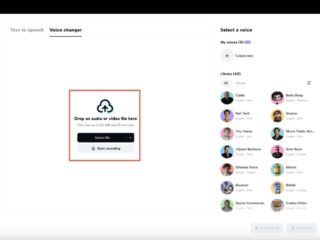
If you have a business that is thriving domestically and are ready to expand into global markets, adapting business strategies to each new region is critical for successful business expansion. Each region has a unique way of receiving, interpreting, and interacting with marketing materials and the goods or services offered. Localizing your approach works to understand these differences and adapt products, resources, and communications to the specific needs of each region. Successful business expansion prioritizes localization.
What exactly is localization? How can you ensure your business does all it can to reach a new target audience? Let’s explore how your business can implement localization to communicate effectively in each region it enters. Expand your reach, foster connections, and build a positive brand reputation in international markets.
The Importance of Localization
Localization bridges the gap between different cultures, languages, and consumer behaviors. Each market has a unique set of cultural and societal norms that make it unique. These singular attributes can profoundly impact how consumers react to brand messaging, products, and services; how they perceive marketing strategies; and how easily they can navigate your website. Even the popularity of certain social media platforms can vary widely from region to region.
To effectively reach a new audience and successfully enter the market, it’s important to prioritize understanding these regional differences and what makes them unique. What is the dominant local language? Which holidays are important? Which values are celebrated? What is the style of humor? What is humorous and benign in one region may be deeply offensive in another. Which symbols have special meanings? How does slang differ? Even color can have different significance from region to region.
Dig deep into culture, customs, language, and preferences. How consumers behave in one market does not always translate directly into another region. A Black Friday sale may work in the United States, but it loses meaning in regions that don’t celebrate Thanksgiving. Not offering chicken or vegetarian options in regions that don’t eat beef or that are primarily vegetarian alienates potential customers.

Instead, localizing demonstrates you understand and respect their values, traditions, and customs.
The Role of Localization
Localization looks for ways to adapt content, tools, products, services, and marketing to meet the needs of each region. Utilizing localization tools can streamline this process, making it easier to customize language, imagery, and messaging for different markets. Localization is pivotal to business expansion because it creates a tailored consumer experience. Doing so ensures your brand is relevant within a new market. It enhances brand awareness and recognition and ultimately builds brand loyalty. Localizing your content enables your brand to connect with an audience, driving engagement and increasing conversions.
Localization also ensures regulatory compliance. By following local laws and regulations, your business can operate smoothly within the legal framework of international markets and avoid unnecessary fines. You also prove your business is credible and trustworthy. Failure to comply can cost your business revenue and its reputation. In extreme cases, it could shut your business down.
Learning, understanding, and adapting strategies mitigate these risks and can ultimately drive success in international markets.
What to Consider When Localizing Content
Localization considers regional differences while implementing practical strategies. Some of the top localization strategies consider:
Language
What language is spoken locally? Make sure to work with a translator adept in both languages to ensure accurate translations. Make sure ad campaigns, marketing materials, and websites are accurately translated into the local language. For professional translation services, visit Globallinkweb.com. Avoid slang because colloquialisms aren’t universal, and your brand messaging may be lost in translation.
Culture
What are the cultural and societal norms of the region? What traditions, customs, or values are upheld? What holidays, symbols, or religions are culturally significant? There are a lot of cultural nuances, so it’s important to establish relationships with local talent to understand the details, form deep connections, and avoid offending your audience.
Consumer Behavior
What influences the purchasing decisions of your target audience? Consumer behavior studies

the actions and decisions influencing someone when purchasing or using services.
Environmental and societal factors can profoundly impact a consumer’s decision to choose a product or service. Using analytics to evaluate these behaviors can guide your business to offer different products regionally, adapt marketing strategies to match consumer preferences, and create relatable ad campaigns.
How Can Your Business Implement Localization Strategies?
A few tips to get you started:
● Adapt existing products or launch new regional products. Product localization may be as simple as changing the color of an existing product or providing vegetarian options.
● Localize the website through accurate translations, proper formatting, and accepting payments using local currency.
● Partner with local influencers who can lend credibility to your brand and boost awareness.
● Align marketing strategies with messaging that is clear and relevant.
● Choose appropriate imagery, videos, and color palettes for marketing materials.
● Choose the right keywords for local search engines and global SEO.
● Use social media platforms that are popular locally.
● Offer special promotions for local holidays.
● Uphold regulatory compliances by following local laws and regulations.
For a complete localization strategy, partner with a marketing agency experienced in global expansion. InnoVision Global Marketing leverage their experience with a vast network to help your brand succeed internationally.
The Bottom Line
When your business prioritizes localization, it improves customer experience and gives you a competitive advantage.
Tailoring products or services, optimizing websites for easy navigation in every region, and aligning marketing strategies to local preferences and values demonstrate your brand cares about its customers. It makes the shopping experience easy and personable. Localization boosts the overall customer experience, which in turn fosters brand loyalty.
Effective localization in business expansion gives your brand a competitive advantage. Using analytics and understanding consumer behavior, your brand can utilize best practices for reaching an audience and retaining customers. Adapting marketing strategies and adhering to local customs communicates respect.











